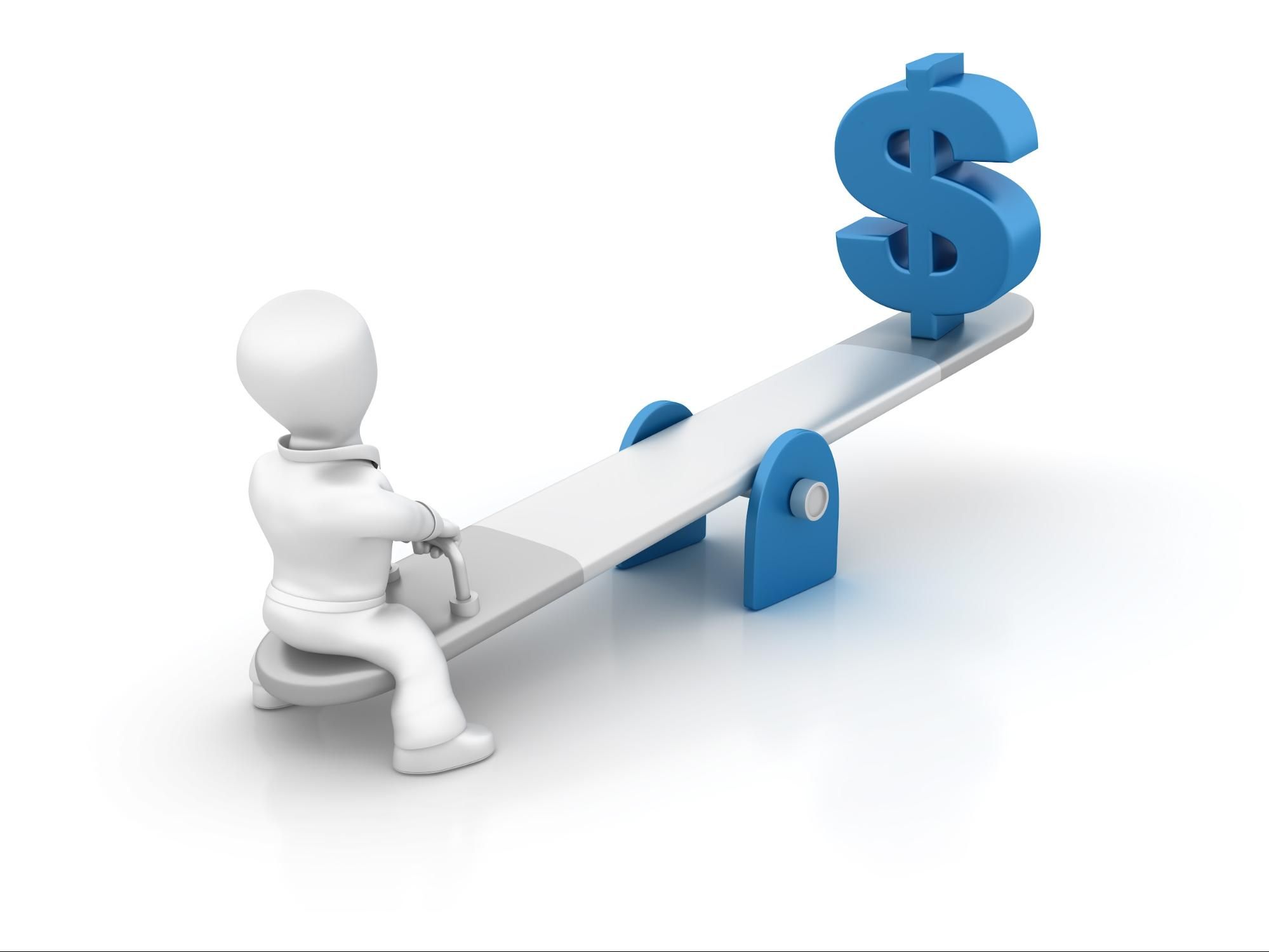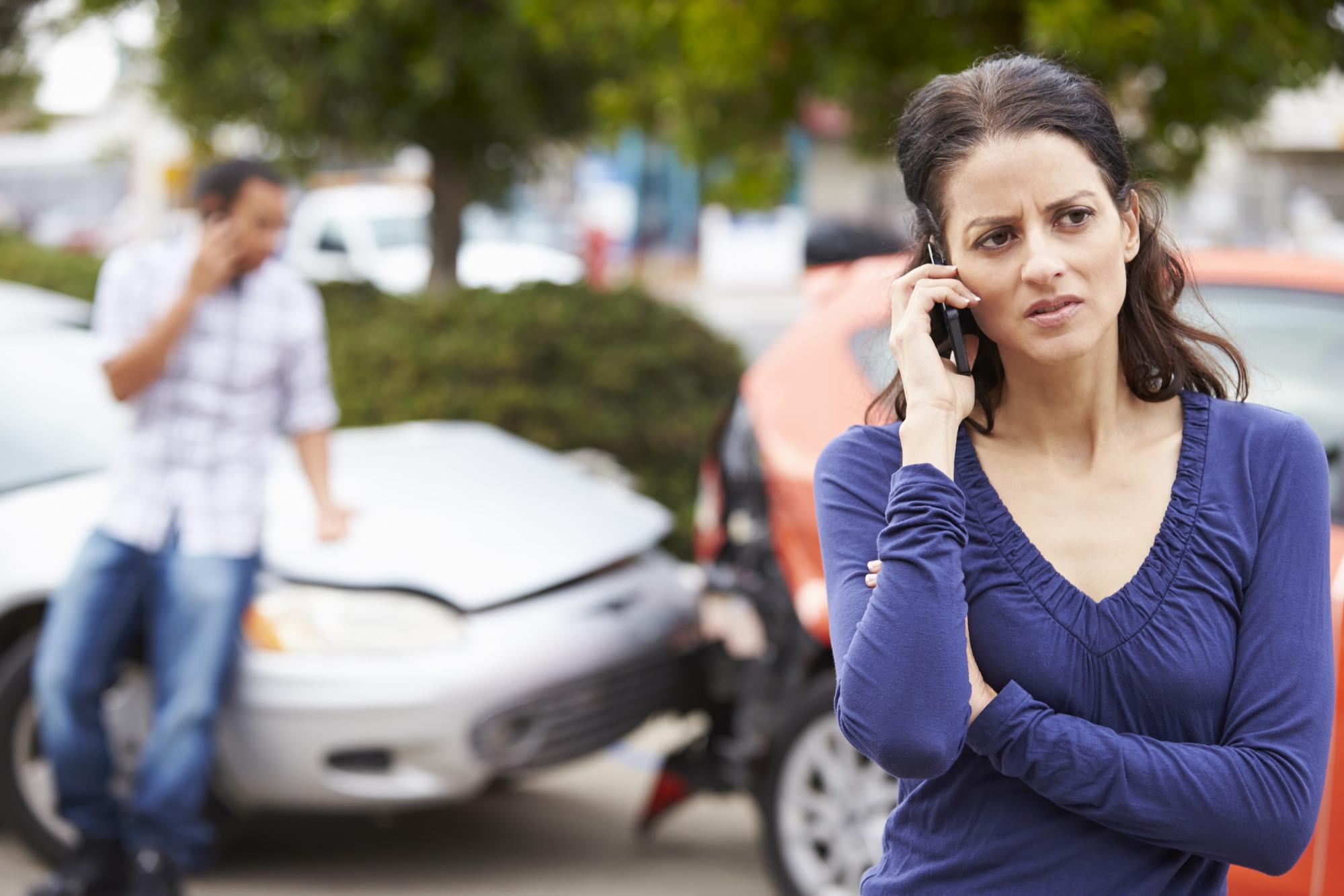
How to calculate the value of your California personal injury case
 By Daniel Amos
By Daniel Amos Everyone wants to know if there is a calculator, or a method, or a formula, or an algorithm that can be used to figure out how much they are going to get for their personal injury case?
The simple answer is: No, there is no calculator or formula or algorithm to accurately tell you how much your specific injury case is worth. It doesn’t work that way in a personal injury case, at least not in California.
In this article we are going to explore some of the most important factors that can shape how your personal injury case is valued; like “Who is your personal injury lawyer? '' and “What type of medical treatment did you receive?”
The purpose of this article isn’t to tell you specifically what your injury case is worth, but to help you understand the elements that will impact the value of your injury case and help you maximize the recovery in your personal injury case.
There are many reasons why there is not an accurate way to make a “standardized calculation” for the value of a personal injury case. One of the biggest reasons is because there is no reliable multiplier for what is referred to as “General Damages”, aka the "pain and suffering" you have endured in your case. Any blogger or “injury calculator” that purports to calculate how much money you are going to receive in your case is in my opinion not accurate and not doing you any favors.

There is no calculator or formula to accurately predict how much your personal injury case is worth.
I began my legal career as a personal injury lawyer in 1985 and developed experience over the years handling thousands of cases, but I can’t calculate how much your personal injury case is worth. What I can do is give you tips and insight on what you can do to maximize the value of your case.
Over more than three decades I learned there are too many factors in any particular case to use a “standardized calculator” to accurately determine the value of an injury case. But here are a few factors to keep in mind that will play a part in determining how much your case is worth:
- How skillful your California personal injury lawyer is at handling the particular type of personal injury case you have (many personal injury lawyers specialize in certain areas and are better equipped to handle those types of cases).
- Understanding the difference between the value of your “case” and the value of your “injuries”.
- Identifying the “legal cause” of your injuries, (which is different than just identifying your injuries).
- How quickly you sought and received medical treatment, and how much “reimbursable” medical treatment you received.
- Determining if there is liability insurance that covers the person or entity who caused your injuries.
- Understanding what type of “witness” you will be in your case (will a jury believe you and empathize with you?).
- Knowing how much “comparative negligence” you might share in your case.
There are countless other factors that go into evaluating an injury case, and we will discuss these in more detail below. But to think there is a simple way to calculate your personal injury settlement value is simply wrong, so read on to get a better idea of what you’ll need to do to get the best possible resolution to your California personal injury case.

Find the right lawyer who can effectively handle and evaluate your case.
Let's start with something I have been telling my clients for more than 35 years: The most important decision you will make in your personal injury case is the lawyer you decide to hire.
You have the most power you will ever have in your case when you are looking to hire your lawyer. As soon as you hire your lawyer, you hand much of your power over to the lawyer. So the decision you make on who to hire is incredibly important. And in a personal injury case that is especially true because it is a specific type of law that not every lawyer understands.
I can’t tell you how many people have come to me over the years with unrealistic expectations about their personal injury case and said something like, “A lawyer told me my personal injury case is worth a million dollars”, only to find out the lawyer who said that was a family law attorney who has never handled a personal injury case and therefore had no idea what a personal injury case is worth.
So to start, you have to hire what I like to call a “real” personal injury lawyer. By that, I mean a lawyer who handles only personal injury cases, or at least handles mostly personal injury cases. That is really important to your case!
To take this a step further, not all personal injury lawyers are the same. Most people in the general public don’t know this. It’s like saying all doctors are the same. They’re not! There are many different kinds of doctors who specialize in many areas of medicine like dermatology, neurology, hematology, orthopedics, surgery, and many other specialties.
This is also true with personal injury lawyers. There are many different types of “injury lawyers” who have very different specialties. For example, there are personal injury lawyers who specialize in medical malpractice cases, and there are personal injury lawyers who specialize in aviation crashes. There are many different types of personal injury lawyers with all sorts of specialties. Here are just a few examples of the different types of cases that personal injury lawyers specialize in:
- Insurance Bad Faith cases
- Defective Product Liability cases
- Bad Drug cases
- Medical Malpractice cases
- Legal Malpractice cases
- Aviation Disaster cases
- Elder Abuse and Nursing Home cases
- Sexual Abuse cases
- Asbestos and Mesothelioma cases
- Wrongful Termination & Employment Harassment cases
- Wage & Hour (FLSA) cases
- Hostile Work Environment cases
- Discrimination cases
- Assault & Battery cases
- Negligent Supervision cases
- Trip & Fall (slip & fall) cases
- Class Action cases
- Construction Defect cases
- Police Misconduct cases
- Workers Compensation cases
- Motor vehicle accident cases (cars, trucks, motorcycles)
This is just a shortlist of some of the legal specialties you can find within the area of “personal injury cases.” And if you have looked for a personal injury lawyer in California you have probably noticed that many lawyers even claim to have a specialty in things like “brain injury cases” or “wrongful death cases” or “burn injury cases”. These are special areas of injury and damages, which are different from the various areas of the law.
The point is, there is a lot you have to know so you can make the right choice. It is important for you to find a personal injury lawyer that is right for your particular type of case. You wouldn’t go to an OB/GYN doctor to fix your broken arm (it’s the wrong specialty of medicine), and you shouldn’t go to a lawyer who specializes in car accident cases to handle your elder abuse case (it’s the wrong specialty of law).
So your first job is to find an injury lawyer who has a lot of experience in your particular type of case, (both the law and the injury type, if possible) because then you are much more likely to get an honest and accurate opinion or calculation of the potential value of your injury case. A lawyer who has handled a lot of cases like yours will know what kind of questions to ask you about your case and your injuries, which will help to estimate the potential value of your case.
The size of your lawyer/law firm should fit the size of your lawsuit
Another consideration you should keep in mind is the potential “size” of your personal injury case. Here’s what I mean. There are some great California lawyers who handle really big multi-million dollar personal injury cases who I would not recommend to a client who had a really strong but small personal injury case. Not because the lawyer couldn’t handle the smaller case, but because the lawyer is probably not set up to handle a smaller case.
I have seen too many people with strong, but small cases, who wind up with a high-powered personal injury lawyer at a big high-powered law firm, and their small case falls through the cracks and doesn’t get the type of attention it needs and deserves. Sometimes the lawyer won’t even work on it and the case gets handled by a law clerk or paralegal. As a result, the client was really unhappy, the communication was poor, and the experience and result were not what they should have been.
To find a great injury lawyer who has experience in the right specialty, and has the right size practice for your particular case, check with a California State Bar certified lawyer referral service, like Higher Legal, to make sure you find the right personal injury lawyer.

The difference between the value of your “injuries” and the value of your “case”
This is a confusing concept for most people, but it is the right place to start when trying to figure out how much you might recover in your case. Here’s what I mean when I say the value of your “injuries” is different from the value of your “case”. Let’s start with your injuries.
Your “injuries'' are personal to YOU. You are the person who felt them and who lives them. You are the one who has the best understanding of how bad they are, and how much pain and grief they have caused you. You are the one who experienced the physical pain, fright, emotional stress, and upset. You are the one who has been immobilized, who has experienced sleepless nights, who can’t do the things you used to enjoy, and all of these ‘experiences’ are personal and have a certain “value” to you. The problem is that the value of your case is not fully based on the value of your personal experiences.
Your “case” is NOT you, it is simply a document that is filed in a courthouse. It is not personal, it is a legal pleading. It describes what happened in the accident and the resulting injuries or damages. And the value of that court document is not the same as the value of your injuries. That document filed in the courthouse has a value that is based in part on your injuries, but it is also based on many other factors.
I sometimes describe it like this: Your injury might be a broken arm, but your case is a piece of paper filed in a court building; they are two entirely different things and they may have very different values.
The reason there is no accurate calculator to determine the value of your personal injury case is because there are so many different circumstances that happened in your accident and so many different circumstances that will continue to happen as your case is developed.

A real-life case example
Let me give you an example of a case I handled early in my career that really drove this concept home for me. The case involved a woman who slipped and fell in the frozen food section of a supermarket. She hurt her back and needed to have surgery on her spine. It was a serious injury and I calculated the case was worth a substantial amount of money. This type of case is known as a slip & fall case.
The first issue I had to determine was this: Why did she fall, and what caused her to fall? It turned out that a frozen food freezer had been leaking water in the area right where she fell and it caused water to leak onto the floor which she slipped in. The broken freezer had leaked because of poor maintenance and a lack of inspections by the supermarket. The market also failed to put up any warning signs, even though they knew water was leaking into the aisle. It looked like it was the supermarket's fault and it looked like a very valuable case.
A few months after the accident she had surgery on her spine. During the surgery, something went terribly wrong when the blood which the surgeon had been collecting from the surgical site with a cell saver machine was transferred back into her. Usually, this is a simple procedure, but for reasons unknown, the cell saver machine malfunctioned, and the result was that she lost a lot of blood and needed an emergency blood transfusion to save her life.
Well, it turns out that she was from a religion that does not allow blood transfusions. The doctor told her that she needed a simple blood transfusion and if she did not have it she would die. She was a very devoutly religious woman and she refused the blood transfusion. As a result, she died. It was tragic. It also had serious legal implications on the value of the case. Her husband and children believed they should still recover from the supermarket because it was the one that caused all of this to occur in the first place, and it all led up to her death.
The case went to trial and the judge ruled that the supermarket was not at fault for her death because her refusal to consent to a simple blood transfusion was a “superseding cause” of her death. In other words, even though the supermarket was the actual cause of her “injury” when she slipped and fell, it was not the legal cause of her “death” because under the law her refusing the blood transfusion was considered “highly unusual conduct or an extraordinary response to the situation” which the supermarket “had no reason to expect”. (See CACI 432)
To make matters worse for her family, the company that made the cell saver machine that malfunctioned during the surgery was out of business so there was no way to collect any money from them.
So the result was that this case, which I had evaluated as a case with a large monetary value, had no value at all. I learned a lesson that there are so many factors that can come into play during a case, that it is difficult to accurately calculate what the true value of the “case” is, even if the value of the “injuries” is very high.
This example also demonstrates how important it is to be able to prove that the accident was the “legal cause” of the injuries. In my case, it was clear that the supermarket was the “actual cause” of my client's spine injuries which required surgery, but under California law, the supermarket was not the “legal cause” of her death. It was a hard lesson learned.
Get to the doctor ASAP because it affects the value of your case
When it comes to calculating the value of your personal injury case, one of the most important things insurance companies look at is how fast you get medical treatment. This can drastically affect the value of your case, so see a doctor as soon as possible after your accident. Preferably on the day of the accident!
Often people like to “wait and see how things go”, or see if maybe they’ll get better on their own, or they say they “don’t like to complain” so they don’t go to the doctor right away. Well, that’s a terrible idea for several reasons. One of the main reasons that insurance companies deny injury claims is because people wait too long after the accident to see a doctor, and then the insurance company takes the position that the accident couldn’t have been that bad.
If you delay seeking medical care the insurance company in your case will likely take the position your injuries aren’t that serious when they are calculating the value of your case. So don’t delay!
It’s also important to see a doctor right away because it helps to document important facts about the accident, such as how you felt immediately after the accident and what parts of your body were affected. Just like a Police Report documents what happened at the accident scene, the initial ambulance or doctor’s report documents what happened to you and your body in the accident.

Get the “right” kind of medical treatment!
When the insurance company is calculating the value of your personal injury case they will also look closely at the type of medical treatment you receive. Here are a few things to watch out for that will affect how the value of your personal injury case is calculated:
Most of your medical expenses should be for your treatment, not your diagnosis
For example, if you are in a car accident and you have $10,000 in medical bills, but $8,000 of it is for an expensive diagnostic procedure like an MRI and only $2,000 is for actual treatment, like physical therapy, the insurance company will put a smaller evaluation on your case than if $8,000 was for treatment and only $2,000 was for diagnostic. Be sure to actually receive “treatment” for your injuries as it will affect the value and calculation of your case.
Find “mainstream” medical providers
Unfortunately, insurance companies have a strong bias for what they call “mainstream” medical providers like hospitals, physicians, and physical therapists. They have a bias against what they call “alternative” care providers such as chiropractors, acupuncturists, and massage therapy. I agree with what many of you are thinking right now - that chiropractors, acupuncturists, and massage therapists are great medical healers - but this is how the insurance industry works, and they are the ones who are going to evaluate your case.
Be cautious about the amount of time you receive treatment
When you are injured you need to receive medical treatment for as long as you and your doctor feel is necessary to get you back to full health. Unfortunately, the insurance companies don’t see it this way. They are suspicious of medical care that goes on longer than their company “checklists” state. So it is important for you to make sure your doctor is monitoring your care carefully and documenting in your medical chart your need to continue your treatment.
Don’t have any long gaps in your treatment
The insurance company will use gaps to argue your treatment should be cut off when you stopped going for treatment. In other words, if you receive consistent medical treatment from the day of your accident for 6-weeks, and then you stop treating for 4-weeks, and then you decide to go back for more treatment, the insurance company will likely deny this additional treatment because you had a 4-week “gap” in your treatment.
I am not saying you shouldn’t get treatment whenever you need it, or that the insurance company won’t pay for your treatment that is obtained after a long gap, but I am sharing with you my experience with handling these cases for many years. So the bottom line is to be diligent and consistent in your care and treatment.

The existence or lack of insurance coverage will greatly affect the value of your case
In my many years of working as a personal injury lawyer in California, one of the hardest conversations I have had to have with clients is to inform them that there is not enough insurance available in their case to fully compensate them for their injuries.
I have had countless car accident cases where there was a terrible accident, my client suffered permanent and serious physical injuries, which also caused them to sustain a large loss of income from their work, which meant their case was worth hundreds of thousands of dollars, but the person who caused the accident only had $15,000 in auto insurance. In other words, there wasn’t enough insurance to cover the true value of their case.
When this happens the first thing we do is ask if our client has Uninsured/Underinsured coverage (UM/UIM) on their own auto insurance policy because that type of insurance coverage allows them to still make a recovery (from their own insurance company) even if the person who caused the accident has no, or not enough, auto insurance. Unfortunately, most people carry very little UM/UIM insurance, so they often don’t recover a fair value for their injuries.
TIP: Be sure to check your automobile insurance and make sure you carry enough UM/UIM coverage!
So even if a case has a large monetary value because there are serious physical injuries, it doesn’t mean there will be a recovery in that amount. An evaluation of how much a case is worth always has to include an investigation into whether there is insurance to cover the accident. That investigation should be done to look at all possible insurance possibilities and recoverable personal assets.

Will the jury like you?
Your personal injury lawyer will probably not admit this, but he or she is evaluating you and your case from the first minute they meet you. They are also evaluating whether the insurance attorney will like you when your deposition is taken and whether a jury will like you if your case goes to trial. If a jury likes you and has sympathy for you, your case is more valuable. That’s just human nature and it’s one of the factors used by lawyers and insurance companies in evaluating what your personal injury case is worth.
Jurors are people, and people like to do good things for people they like. If a jury likes you, they are more likely to give you more money for your case.

“Likeability” has become a science in the law. There is a whole industry now called Trial Consultants or Jury Consulting where experts help lawyers and their clients select jurors that are most likely to sympathize with their client and their case. There is even a popular TV show called Bull on CBS starring Michael Weatherly which is about a jury consulting firm headed by Dr. Jason Bull, who is a psychologist and trial-science expert that helps law firms win their cases. Your “likeability” is an important element in the value of your personal injury case.
There is a great story about an attorney who represented the National Enquirer magazine which was being sued by actor Clint Eastwood. Supposedly when Clint Eastwood was on the stand testifying in his case, an elderly juror suddenly sneezed, and Eastwood stopped mid-sentence, turned to the juror, looked her straight in the eyes, and gently said, “God bless you, ma’am”. The juror melted in her seat, and the attorney for the National Enquirer knew he had lost the case. “Likeability” is an important element in the value of any case.
The point of this story is that you, as a plaintiff in your personal injury case, are going to be evaluated by your lawyer, by the lawyer for the insurance company, and by the jury if your case goes to court. Studies show if you are a likable person, you are more likely to receive more for your case and it is, therefore, another element that goes into calculating the value of any California personal injury case.
The law will affect the value of your case
In California and many other states, there is a law known as Comparative Negligence. In a nutshell, it means when you are trying to figure out who is at fault for an accident, you have to look at the actions of everyone involved, and “compare” them.
In other words, an accident is not usually 100% your fault, or 100% their fault. Instead, in a comparative negligence state, you have to “compare” how much at fault each person is for an accident, which is why it is called “comparative” negligence.
An example of this might be when two cars in a parking lot are both backing out of parking spots and the backs of the cars collide. Who is at fault? Each driver might say they were looking in their rear-view mirror and they didn’t see the other car so they thought it was OK to back out. In a case like this, it could be said they are both at fault, and probably equally at fault, so each might be 50% at fault.
This matters because in a comparative negligence case in California the damages you recover will be reduced by your percentage of fault. So in our parking lot example, if one of the drivers has $5,000 in damages and is 50% at fault, that driver would only recover $2,500.
So the law that applies to your case is another element when it comes to determining the value of your case. If you are in a state with comparative fault laws like California, an evaluation of the value of any case has to include comparing the fault of each person.
Beware of the “Free Evaluation of Your Case”
One last thought. Beware of the legal commercials on TV, radio, and the internet by personal injury lawyers who tell you they won’t charge you anything to give you a “free evaluation of your personal injury case”. That’s like saying if you order a hamburger at McDonald's they will give you a free bun! Of course, they will! Every personal injury lawyer will give you a “free” review of your case (just like every hamburger comes with a bun!).
What the lawyer is really saying is they want to sign you up as fast as possible, even if they are the wrong type of injury lawyer for your case. One way these lawyers try to get you to sign up is after telling you they will give you a “free case evaluation” they’ll tell you your case is worth a fortune, even if it isn’t. So beware of these types of claims by injury lawyers who are all hype and no substance. They are not the best way to get a fair or true evaluation of your personal injury case.
Now, I’m not saying you shouldn’t have your case reviewed, I am saying you should have it reviewed by the right person and you should be aware of these factors that will impact the value of your case. And I recommend you have your case reviewed by several lawyers so you can compare them. You should compare their experience, their area of expertise, and how much they charge. That is the best way to know the true value of your personal injury case, at least in my opinion!
I hope this article has provided you with some helpful information on how to find a realistic evaluation of your personal injury case in California. Your case calculation is not made by a simple calculation or fancy analytics, but from an experienced personal injury lawyer who understands your particular type of case.
I realize there is a lot of information to absorb here, and this is a very short summary of these very complex issues, so if you have any questions, please feel free to reach out to me and tell me about your case.
If you need a referral to a great personal injury lawyer, send me a message and I will get right back to you.
If you found any of this information useful I hope you will share this post with your family and friends, and ‘SUBSCRIBE’ to this blog. Your support helps grow our community and allows us to help others like you who are looking for reliable legal information.
Thanks for reading!